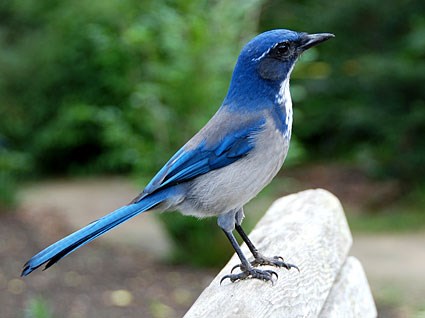One of the sad facts of life is death. For humans, we have certain practices depending on faith or culture that make the issue of loss more bearable. Indeed many parents get their children pets not just for the lesson of responsibility but also to experience the pain of loss. But how do animals respond to death? Do they mourn for their relatives, or does their ‘animalistic survive or die’ instinct kick in?
It has long been known that higher mammals such as Elephants and Chimps recognise and at least investigate the bodies of their relatives. In the case of Elephants, juveniles have even been reported to refuse to leave their mothers if they die. Humans are often guilty of thinking only ‘intelligent’ animals can perform ‘human-like’ actions, but once again we need to have a rethink!
 A new study has showed that when western scrub jays discover a dead bird they stop foraging and call out to other birds in the area. The group of jays then surround the body of the dead bird. But why did this behaviour evolve? Or rather, what is the advantage to this behaviour? Researchers at the University of California suggest the behaviour may have evolved to warn other jays that there is a predator in the area.
A new study has showed that when western scrub jays discover a dead bird they stop foraging and call out to other birds in the area. The group of jays then surround the body of the dead bird. But why did this behaviour evolve? Or rather, what is the advantage to this behaviour? Researchers at the University of California suggest the behaviour may have evolved to warn other jays that there is a predator in the area.
But that doesn’t really answer the question. We should consider instead, why is it advantageous to warn other jays a predator is nearby? There are many cases throughout the animal kingdom of alarm calls being used. Common consensus amongst scientists is that these alarm calls are to warn related individuals of predators. Related individuals share some of the genes of the caller and so it is in the interest of the caller to protect the related individuals, similar to a parent protecting their child or a cousin rather than a stranger.
In my opinion the message to take from the western scrub jay is: behaviour is usually not what it seems. Are these birds actually mourning their dead? As much as it would be nice to think so, the likelihood is they are not. It seems much more likely that the innate reason for their behaviour is to carry out the basic function of life: to survive and pass on your genes to the next generation.